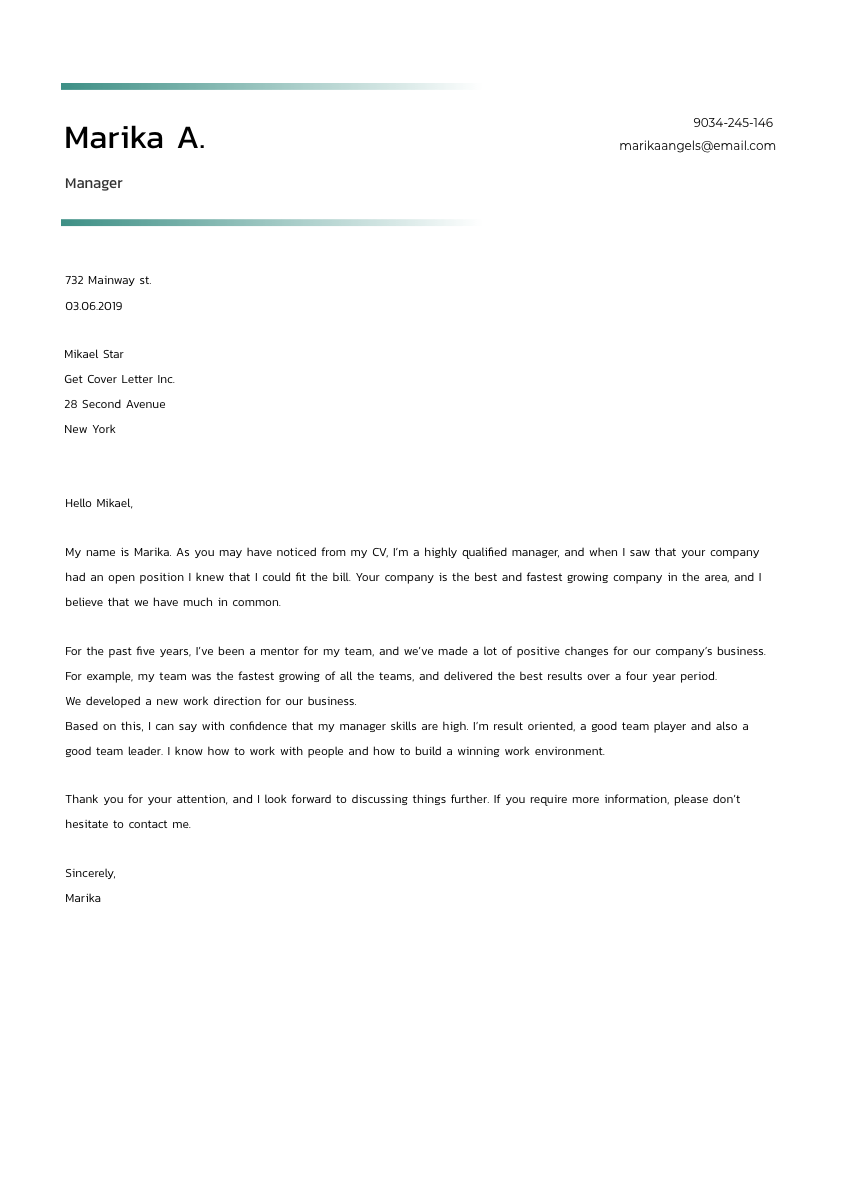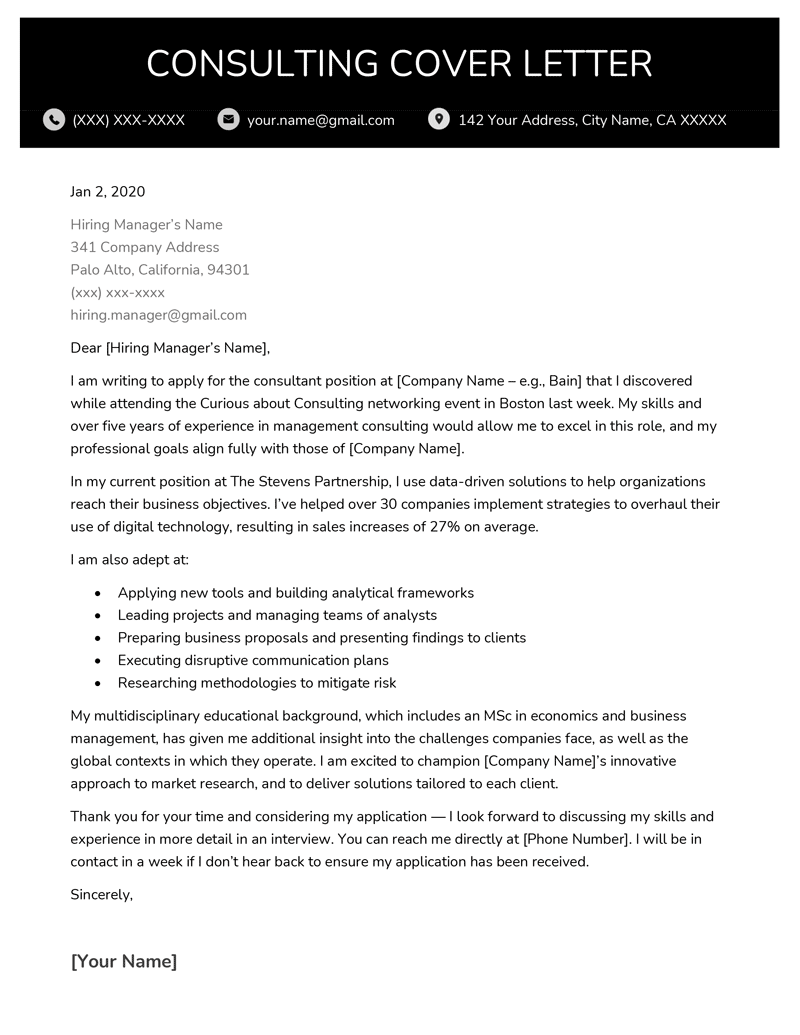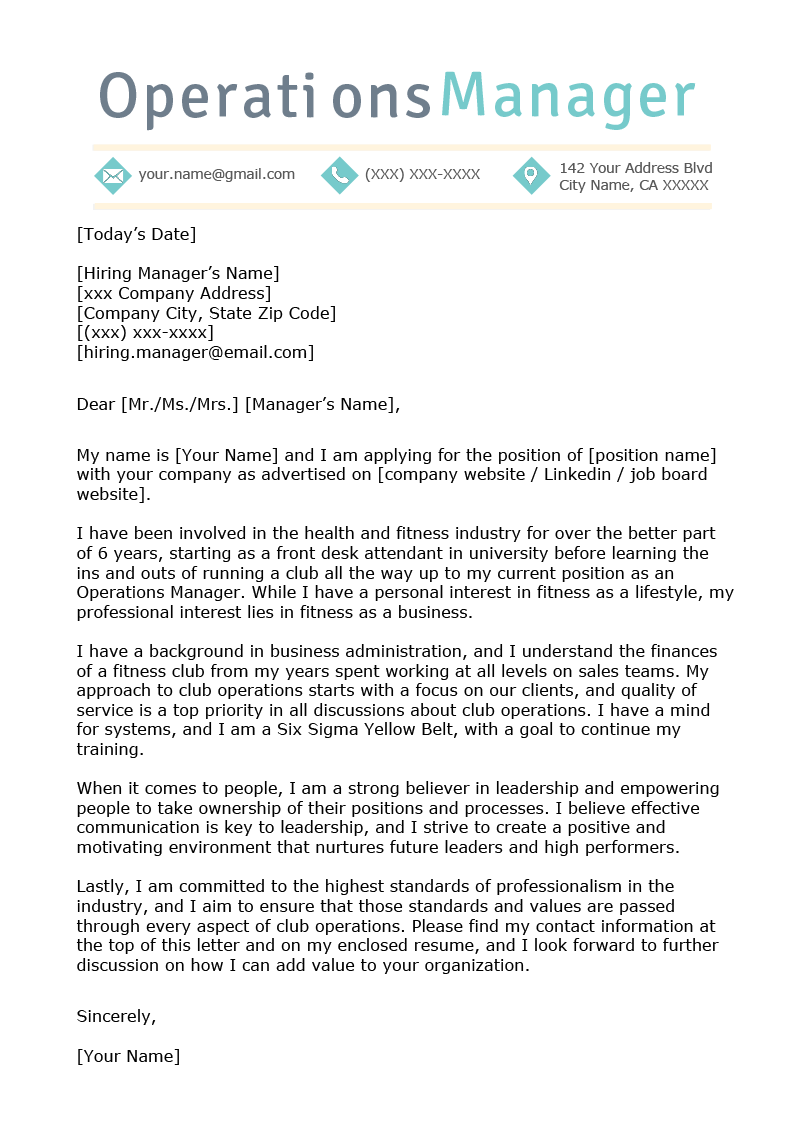

- Cover letter sample manager position how to#
- Cover letter sample manager position professional#
- Cover letter sample manager position free#
I understand you're currently adding several new product lines, and I believe my skills in video and animation provide a significant advantage for creating a successful launch. "I'm excited to apply for the Graphic Designer position at Cloud Clearwater I found on Indeed. Explain your interest in the role and company to show you've done your research. The first section of your cover letter is also the first impression the reader will have of you, so it's important to appeal to that person quickly and succinctly. In the first paragraph, mention the job title you're applying for and where you saw the position posting.

Cover letter sample manager position how to#
Related: How To Address a Cover Letter 3. Address your letter to this person with a common business greeting, such as "Dear " or "Dear. In your research, try to find the name of the person reviewing applications for the job.

Related: Q&A: Should You Put Your Address on Your Resume? 2. If you'd like, you can center your name and address at the top of the page, mirroring how it looks on your resume.Īli Lang 555 Orchard Lane, Las Vegas, NV(555) 888-4000 Start with your headerĪs with any standard business letter header, you should include a few pieces of personal and role-specific information at the top of your cover letter to make it easier for a hiring manager or recruiter to follow up with you. In the sections below, we'll offer detailed information about what to include in each area with examples. Here are six simple steps to writing a great cover letter. Your letter should be left-aligned with single spacing and one-inch margins.
Cover letter sample manager position professional#
Your cover letter should be one page long and use a simple, professional font, such as Arial or Helvetica, 10 to 12 points in size. If not, consider addressing the cover letter to "Dear Hiring Manager" or "Dear Human Resources."Ī cover letter should be formatted like a business letter with these sections: If it's a specific person, address them by name and title. Do you admire its culture or brand? Are its reviews positive or negative? Research the company to see if you agree with its mission statement and vision. Think about the company you're writing to and what drew you to it. If it was an ad or job board, write down where and when you saw it and list any specific instructions noted in the job description.

If it's a personal contact, jot down the person's name and title. Think about how you learned about the job opportunity. What talents, skills or accomplishments would you like the company to know? Think about your experiences and how you would like to relate these experiences to a hiring employer. Here are some things to consider before you write a cover letter: Related: Do Employers Care About Cover Letters? What to consider before you writeīefore you craft your cover letter, gather all the information you may need. To avoid a generic cover letter, you should conduct in-depth research on the company and role for which you're applying to in-depth before writing your cover letter. Unlike your resume, cover letters allow you to go into more detail about your professional career and explain why you're a good fit for the role and company.Ī well-written cover letter has the potential to impress employers and set you apart from other applicants. This letter should highlight your skills, experience and achievements concerning the position you seek. It's typically submitted along with your resume in a job application. What is a cover letter?Ī cover letter, also known as an application letter, is a three- to four-paragraph memo to employers explaining your interest in the job and company and your fitness for the role.
Cover letter sample manager position free#
To see example cover letters for your job and industry, browse our free Cover Letter Samples. In this article, we explain how to write a cover letter that makes a great first impression on potential employers. The key to writing an effective cover letter is to clearly show how your professional experience fits the needs of the open role and the culture of the hiring company. While cover letters are not always required, many hiring managers still rely on them to gauge an applicant's skills, experience and background.


 0 kommentar(er)
0 kommentar(er)
